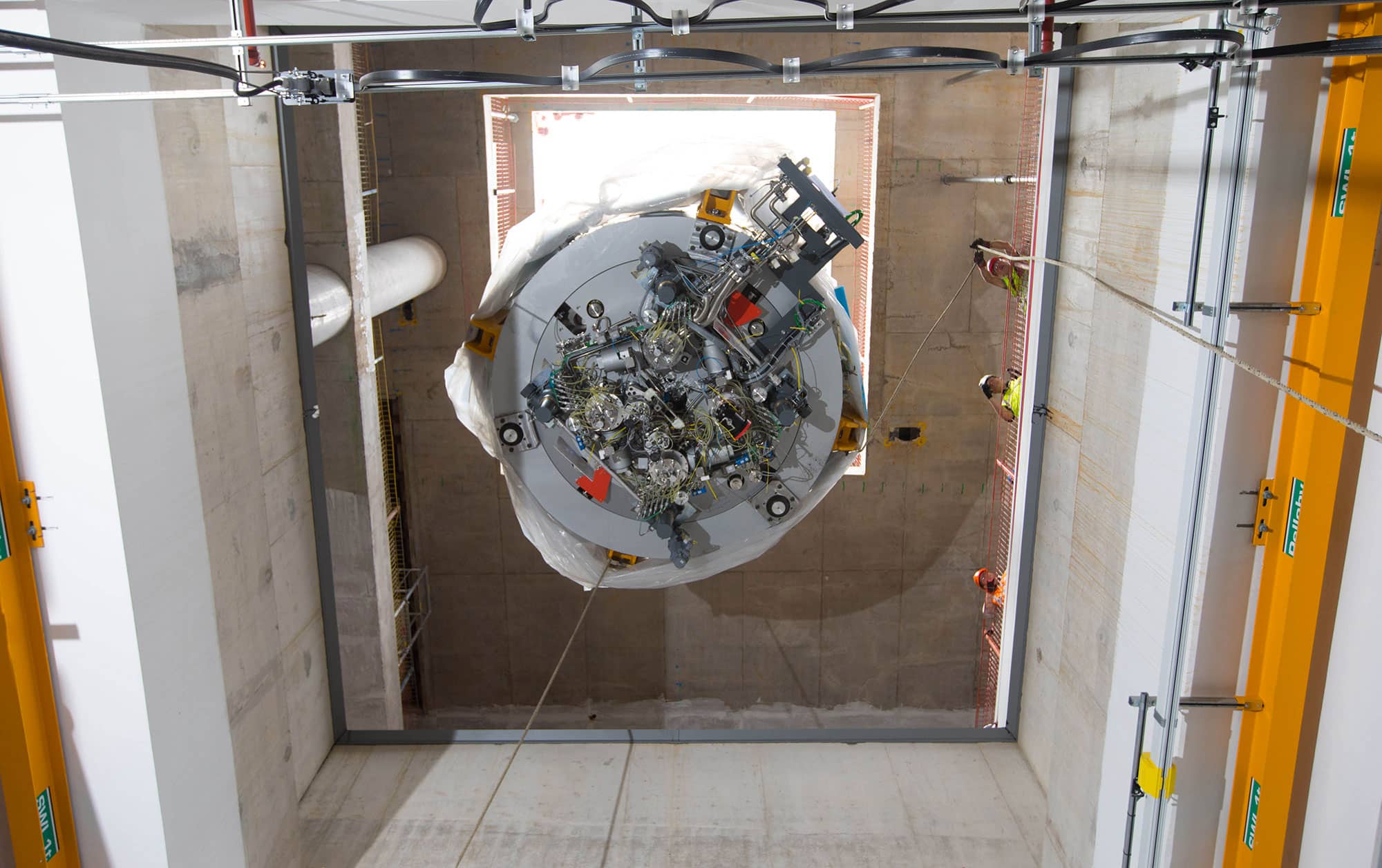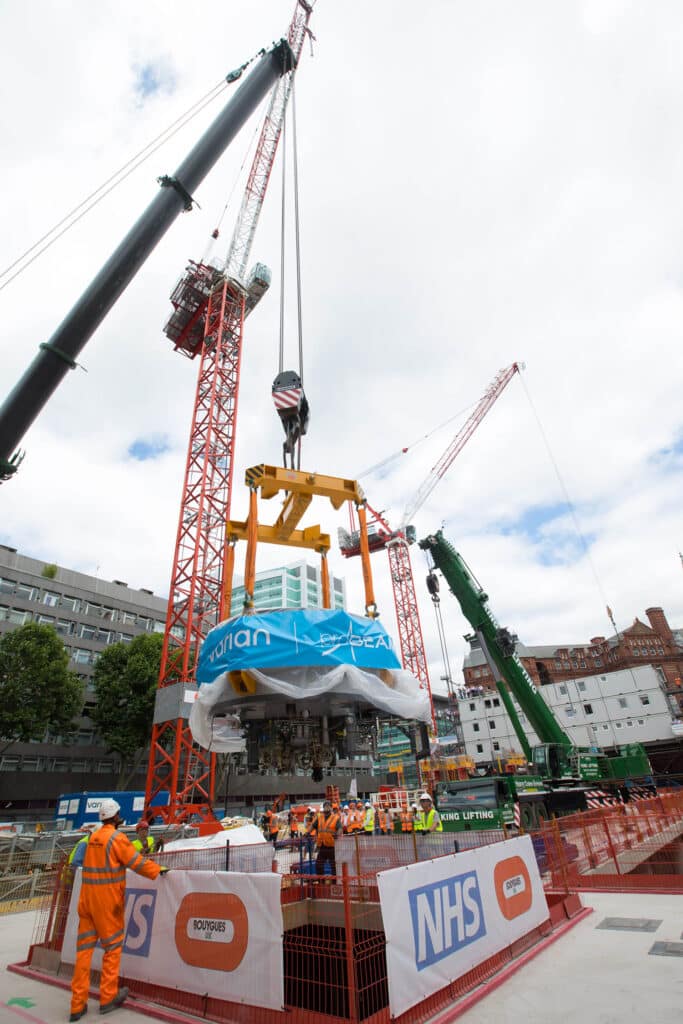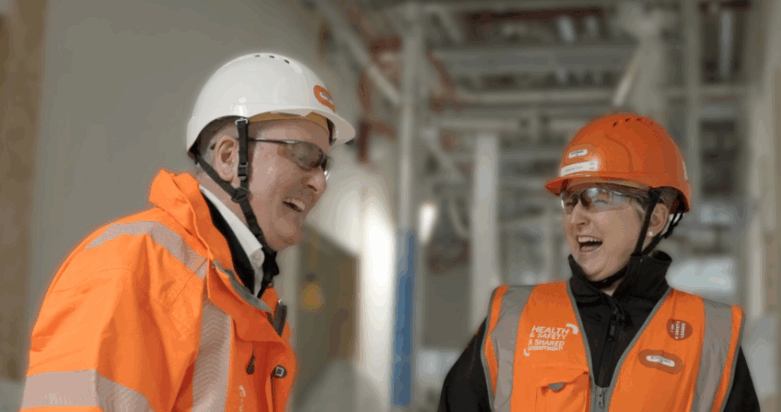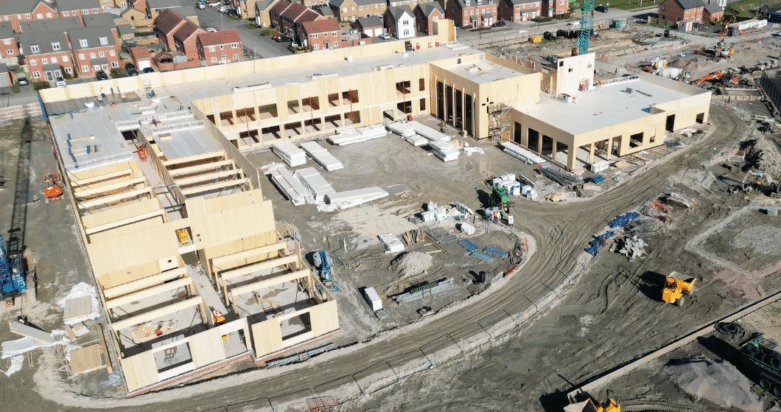
90-tonne cancer-fighting cyclotron arrives in London
Cancer-fighting equipment that will transform the lives of hundreds of NHS cancer patients every year has arrived in London (19 June 2018).
The size of a family car and weighing the same as seven London buses, the cyclotron is the beating heart of the proton beam therapy centre at UCLH, being delivered by Bouygues UK.
Proton beam therapy (PBT) is a form of radiotherapy that destroys cancer cells with pinpoint accuracy with less damage to surrounding tissue. This is particularly important for children and young people, and when cancers are in certain parts of the body.

PBT can protect fertility, IQ or growth and reduce the risks of developing a radiation-induced new cancer in the future, or the need for life-long hormone replacement.
The NHS has one of the most successful programmes to enable people to access proton beam therapy overseas, with over 1,200 patients treated since 2008. Together with the Department of Health, NHS England is funding the development of two world-class centres, one in Manchester and the other here at UCLH in London, for NHS patients to be treated in the UK.
As part of the NHS treatment programme, Emily Major, 26, made the journey to the United States to have PBT.
Emily Major said: “I had PBT back in 2015 in the States to make sure that my cancers were completely removed. Now I have regained my strength and enjoy my active life, working full time. It is really exciting seeing this new centre being built and it is great that it means people will be able to have PBT in London.”
Creating the beam of protons is a feat of physics and engineering. The cyclotron is cooled to -269˚C and spins ionised hydrogen at two-thirds the speed of light. This creates the beam of protons that is then guided via massive magnets to the treatment room, where a three-storey machine delivers the treatment to the patient with millimetre accuracy.
Having travelled 400 miles from Germany via Holland to UCLH, the machine is being lowered into its especially constructed vault – a key milestone in the construction of the 11-storey facility at UCLH.
Marcel Levi, UCLH CEO, said: “With the NHS turning 70 this year, it is absolutely fantastic to be investing in world leading treatments and facilities. When the PBT centre opens, more adults, young people and children will be able to access this treatment, ensuring better recovery and fewer side effects than possible with other treatments.”
Following a staff vote, the cyclotron has been named Lise, honouring Lise Meitner’s pioneering work in radioactivity and nuclear physics, including her role in the discovery of nuclear fission in the 1930s.
Steve Powis, NHS England’s National Medical Director, said: “Today marks an exciting milestone in the NHS’s continuing delivery of world-class cancer treatment. As the NHS celebrates seventy years of high-quality patient care, the arrival of this proton beam equipment is just one example of the innovative technology that the health service will be able to rely on in the years to come.”
Fabienne Viala, Chair of Bouygues UK, the construction company responsible for the delivery of the new PBT centre at UCLH, said: “The delivery of the cyclotron is a technically complex and exacting process that we and our experienced infrastructure colleagues at Bouygues Travaux Publics have spent months preparing for.
“The cyclotron is a critical component of the new PBT centre and we are very proud to be involved in the delivery of such an innovative and challenging build that will provide a revolutionary and precise form of treatment for NHS cancer patients.”
The PBT centre at the Christie NHS Foundation Trust, Manchester, is due to start treating patients later this year, with the UCLH centre opening in 2020.
Image © David Parry










